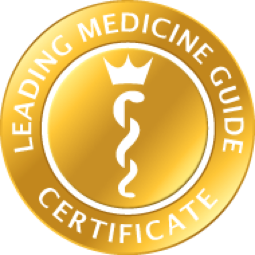At our practice in the center of Cologne, our primary focus is the treatment of hernias. Additionally, we also treat patients suffering from visceral-surgical pathologies, and the spectrum of operative procedures that we have on offer extends to port implantation. We can treat our patients either on an outpatient or short-stay inpatient basis directly on-site at the PAN Clinic.
Range of treatments
We specialize in open and modern minimally invasive (3D) surgical techniques
- What's a hernia?
- Is a hernia dangerous?
- Can a hernia also be treated without surgery?
- Does every type of hernia require surgical treatment?
- Should a mesh always be used during hernia surgery?
A hernia is when the contents of the abdomen cavity exit through the abdominal wall. A hernia always consists of a hole, a hernia sac, and the hernia contents. The condition can be congenital (weakness of the connective tissue) or it can be acquired later in life. Heavy physical work, increased intraabdominal pressure, chronic coughing, or excessive pressing due to constipation can also trigger the development of a hernia. A hernia most commonly develops at the weakest section of the abdominal wall. These weak areas are the groin, navel, and the area of the diaphragm through which the esophagus passes. In principle, a hernia can develop in any area of the abdominal wall, especially after abdominal surgery.
There are various factors that contribute to a hernia being deemed life-threatening. An incarcerated hernia can cause the blood supply to the intestines to be cut off and is an emergency which requires immediate operative treatment. Luckily, this complication is rare. However, each different type of hernia carries its own levels of risk for incarceration. In all cases, medical consultation is recommended.
The only type of treatment currently available for hernias is surgery. The effectiveness of the often-mentioned hernia truss is very limited. At most, a truss will only delay the growth of the hernia. Physiotherapy and exercises are also ineffective.
No, factors such as pain levels, location, and size determine if a hernia requires operative treatment or not. Nevertheless, a hernia must be diagnosed correctly and monitored. Your abdominal wall specialist can offer consultation and explain the best option in your case.
Whethermesh is needed or not depends on the location, size, patient’s preference and other additional factors. We will discuss the advantages and disadvantages of mesh during a personal consultation.
PAN Klinik am Neumarkt, 4th Floor
Hernia Center Cologne
Dr. med. Bernd Stechemesser
Zeppelinstraße 1
50667 Köln
Germany
Tel. +49 (0)221 – 277 6431
Fax +49 (0)221 – 277 6432
info@hernienzentrumkoeln.de







